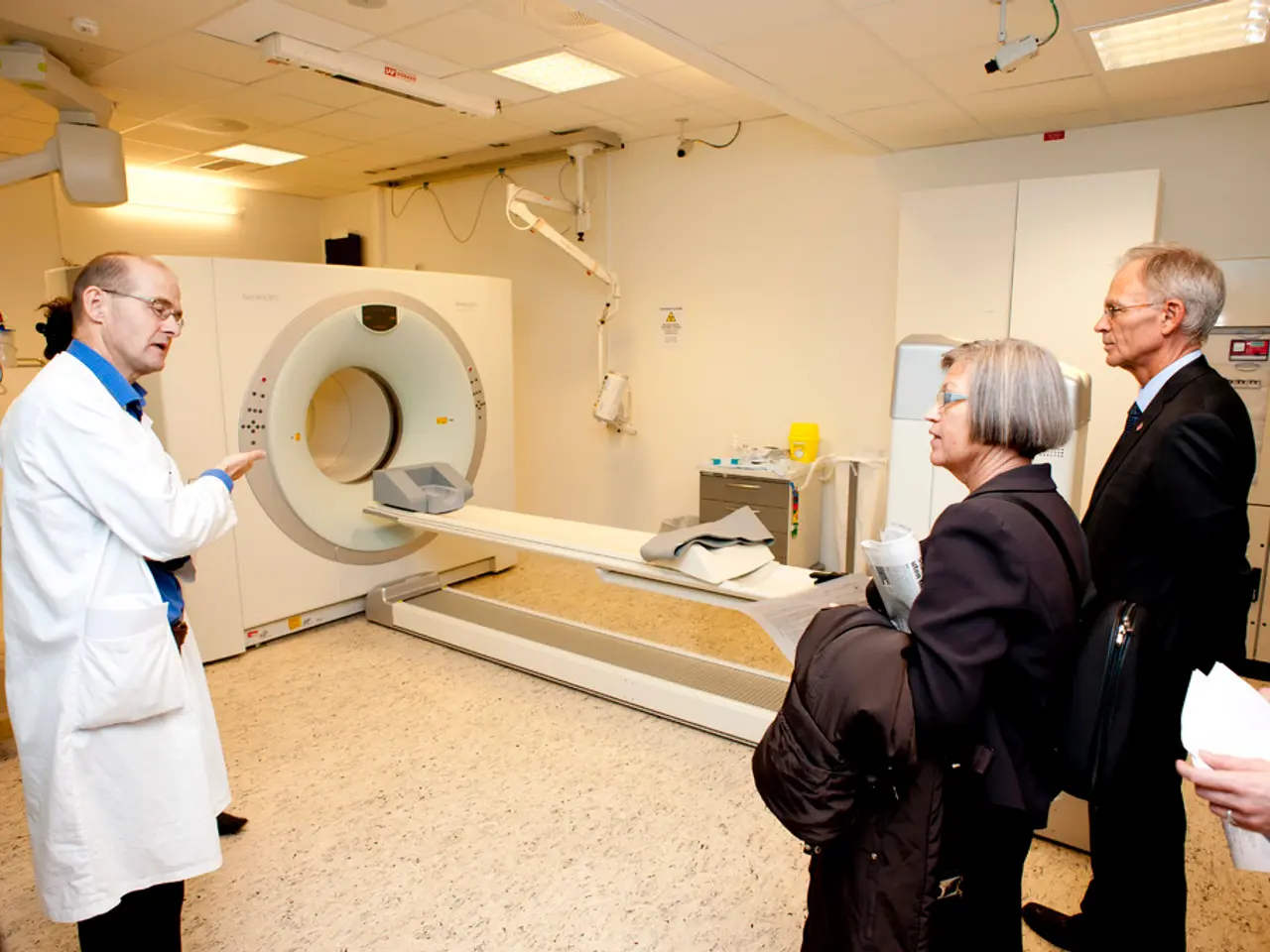Medicare Reform Accolades for CMS: Outcome-Based Care Blueprint Unveiled, Signifying a Decade-Defying Progress
Transforming Healthcare with the Transforming Episode Accountability Model (TEAM)
The Centers for Medicare & Medicaid Services (CMS) has announced the launch of the Transforming Episode Accountability Model (TEAM), a groundbreaking initiative set to improve healthcare value for Medicare beneficiaries undergoing high-cost surgical procedures. The model, which will be implemented from January 1, 2026, aims to encourage better care coordination and outcomes while reducing unnecessary spending.
TEAM will cover five surgical episode categories: Coronary Artery Bypass Grafting (CABG), Total Hip and Knee Arthroplasty (THA/TKA), Spinal fusion, Major bowel procedure, and Acute myocardial infarction. The model mandates participation for selected hospitals, marking a departure from prior voluntary bundled payment models like BPCI.
How TEAM Aims to Improve Health and Reduce Costs:
- Financial Accountability with Shared Savings/Losses: Hospitals will share financial risk and rewards based on spending compared to target prices, incentivizing efficient care.
- Quality Metrics Integration: Performance on quality measures such as readmissions, mortality, and patient-reported outcomes (PROs) will be tracked and factored into evaluations to ensure reduced costs do not compromise care quality.
- Care Coordination: TEAM encourages collaboration across inpatient and outpatient settings, focusing on smooth care transitions and primary care referrals, especially for vulnerable populations with higher social or economic risks.
- Risk Adjustment: TEAM includes risk adjustment for clinical, demographic, and socioeconomic factors to promote equity and account for patient complexity.
- Post-Acute Care Flexibility: TEAM broadens waivers on Skilled Nursing Facility (SNF) rules, allowing patients greater choice and potentially reducing post-acute care costs.
- Improved Target Pricing and Episode Attribution: TEAM enhances methodologies for establishing target prices and episode assignment to better reflect true clinical situations and cost drivers.
The Importance of TEAM:
Leading healthcare providers like UPMC and Rainfall Health have emphasized the importance of outcome-based care models, with UPMC believing that alternative payment models are essential for improving care coordination, workflows, and outcomes. Rainfall Health guides health systems across the U.S. to use innovative approaches to reduce waste, improve workflow management, and incorporate AI and tech-enabled solutions.
Hospitals can earn up to 20% in additional reimbursements by adhering to TEAM, potentially yielding more than $100 million in cost savings per system. The five procedures outlined in TEAM make up about 20% of the current annual Medicare reimbursement for the mandated hospitals, representing a major financial impact and opportunity to improve efficiencies at scale.
TEAM will reward doctors and hospitals for lowering complications and improving quality of care for knee and hip replacements, heart bypass, and other major surgeries. Furthermore, TEAM will improve patient experience and outcomes, helping them recover more quickly after surgery and undergo smoother coordination of care.
The decision to implement TEAM signals the importance of value-based reimbursement as national health policy, prioritizing outcome-based care models and guiding health systems across the U.S. to use innovative approaches to reduce waste, improve workflow management, and incorporate AI and tech-enabled solutions. The CMS's launch of TEAM is applauded by Rainfall Health as the boldest action to improve Medicare in decades.
- The Transforming Episode Accountability Model (TEAM) intends to reduce unnecessary spending in healthcare, particularly for Medicare beneficiaries who undergo high-cost surgical procedures.
- TEAM emphasizes care coordination and outcomes improvement across various settings, including inpatient and outpatient care, as well as primary care referrals for vulnerable populations.
- In the pursuit of balancing costs and quality, TEAM incorporates risk adjustment for factors like clinical, demographic, and socioeconomic risks, ensuring equitable healthcare delivery.
- By promoting outcome-based care models, TEAM could potentially improve medical-conditions management, health-and-wellness outcomes, and the implementation of therapies-and-treatments for complex patients.




